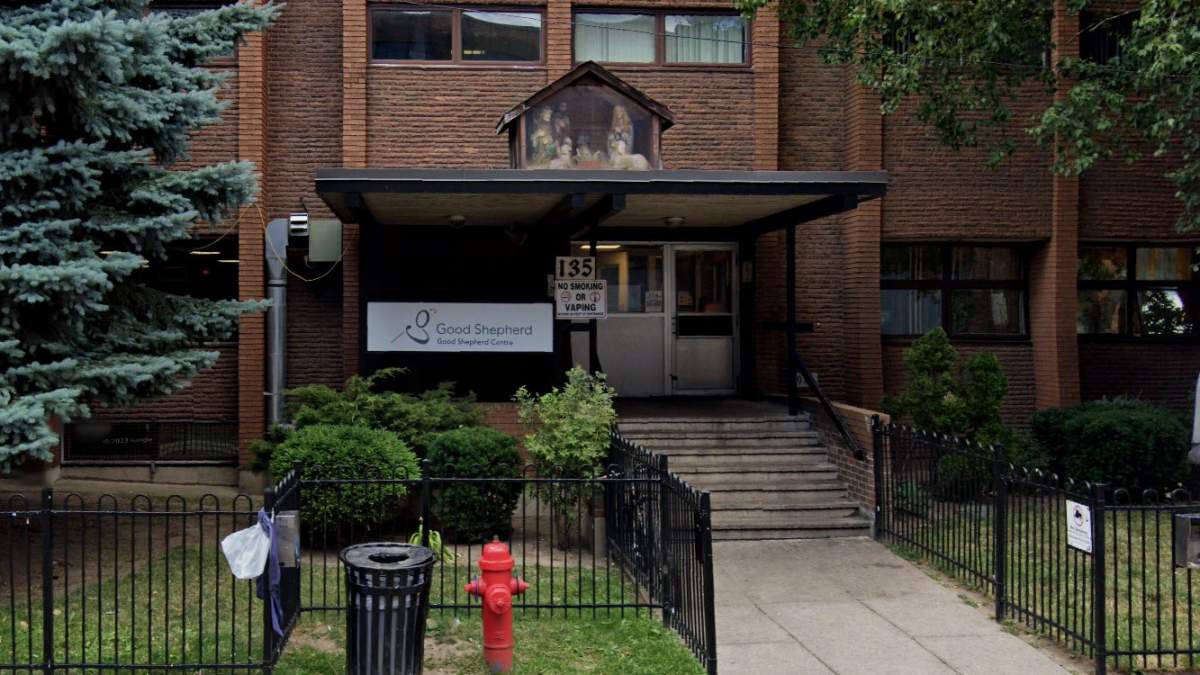Good Shepherd is seeking to tear down one of its men’s shelters in Hamilton, Ont., and replace it with supportive housing.

The non-profit revealed a plan to construct a new 10-story residence in the city centre with more than 150 units that would include onsite support services.
Good Shepherd’s chief executive officer Brother Richard MacPhee says the more modern facility would provide a longer-term solution for some people in shelters who need more time to transition into a more permanent residence.
“It’s really a way in which we’re trying to transform the lives of people who find themselves homeless,” MacPhee explained.

Get breaking National news
“We know that the shelter is a place that people can come and stay, but the reality is people need a longer-term solution.”
Under the plan, the 60-year-old main shelter at 135 Mary St. would be demolished and replaced with a building offering private spaces.
The development has a price tag of around $50 million and the agency is banking on aid from the City of Hamilton, the Ministry of Housing, the Ministry of Health, and the Canada Mortgage and Housing Corporation.
The 10-storey residence is expected to house 156 units with assisted living and 24-hour supports to help people live independently, according to MacPhee.
He said it’s similar Dorothy Day Place, a five-storey, Good Shepherd-operated building at 35 Arkledun Ave., that aids 73 women from the streets by putting them in their own private living quarters.
The project will ultimately eliminate traditional shelter space at the Mary Street facility, but MacPhee said the need for transitional housing that offers private rooms with washrooms is important to help individuals “live independently.”
“I think the reality of the situation is we all still continue to need that shelter space, but the problem … is that affordability in our community,” MacPhee suggested.
“Access to housing is so unattainable for many people.”
- High blood pressure drug recalled over low blood pressure pill mix-up
- ‘Doesn’t make sense’: Union files labour complaint over federal 4-day in-office mandate
- Canadian Tire ordered to pay nearly $1.3 million for false advertising
- Ottawa gives Canada Post a $1.01-billion loan amid ongoing financial struggles








Comments